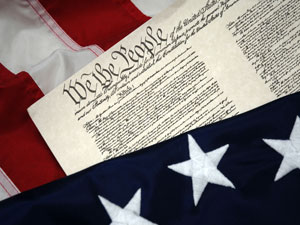CLEF Newsletter - July 2018
“…this I came to see as wisdom under the sun, and it impressed me. There was a small city with few men in it and a great king came, surrounded it, and placed it under siege. But there was found in it a poor wise man and he delivered the city by his wisdom. Yet no one remembered that poor man. So I said, ‘Wisdom is better than strength.’ But the wisdom of the poor man is despised and his words are not heeded. The words of the wise heard in quietness are better than the shouting of a ruler among fools. Wisdom is better than weapons of war, but one wrongdoer destroys much good…” – King Solomon, Ecclesiastes 9:13-18

We will be gathering soon as a nation to celebrate in traditional grand fashion the birth of the declaration of our independence as a separate and sovereign people of these United States. That is a capitalized title because of the history which has borne it true. And it is a history which has needed to repeat itself many times over to keep us independent these now 232 years. The American experiment in freedom and self-determination has since its inception astonished the world, from our inaugural victory against the then reigning empire of the world, to our second triumph against its attempt to regain us; our rapid expansion west, survival in civil war and reformation without slavery, industrialized development, tipping the scales to victory in civilization’s first world war, surviving a catastrophic economic collapse, tipping the scales again in a second world war, and emerging as a nation weathering further wars, cultural shifts and internal strife to be a country and people that reflects the diversity of all cultures and races and leads the free world in standing against oppression in terrorist authoritarianism, despotic repression and tyranny everywhere. Well we should have this day to celebrate and remember. John Adams wrote to his wife, Abigail, predicting that future generations would celebrate July 2 as Independence Day, saying, “The second day of July, 1776, will be celebrated by succeeding generations as the great anniversary festival. It ought to be solemnized with pomp and parade, with shows, games, sports, guns, bells, bonfires, and illumination, from one end of this continent to the other, from this time forward forevermore.” It is now the 4th because that is when the Continental Congress actually adopted the D of I as our united position. There was much jubilation that first year, despite the awareness that they had a hundred to one fight in store against the British, and only God’s providence and their patriotism could deliver them. Yet they were prepared to pay the price for freedom, knowing it would be costly. These days we enjoy more freedom and glory than they ever dreamed of; but are we remembering the history that attained it?
David McCullough, possibly our country’s foremost historian, defines our history as “who we are and why we are the way we are.” In his book The American Spirit he recounts many of the qualifying moments and men which made us who and why. In a speech to congress McCullough pointed out that in Statuary Hall where Representatives used to meet, there still sits over the north doorway a statue of Clio, the muse of history. She rides a winged chariot called the “Car of History” while she inscribes in her book the historical events occurring in that chamber. She has been there since 1837 reminding statesmen that “their words and actions would face the judgment of history, and that they could count themselves part of an honorable heritage.” On it also is a clock, its inner workings cut freehand by one Simon Willard which still keeps perfect time. He made it perfectly, knowing it would tick off the minutes and hours of future historical debates that would define the character and destiny of our nation. Famous men, women and presidents of the last 181 years have done just that, and a historical record of every debate, decision, determination and development (even the final hours and collapse of John Quincy Adams) is written and preserved in the Library of Congress. And that clock has marked precise time through it all. It is “a clock with two hands and an old-fashioned face, the kind that shows what time it is now… what time it used to be… and what time it will become.” Where are we now on that continuum?
American poet/novelist Henry Warren wrote “History cannot give us a program for the future, but it can give us a fuller understanding of ourselves and of our common humanity to better face the future.” McCullough notes that the lessons of history are manifold in that nothing happens in isolation; we’re all part of a larger stream of events, past, present and future. What we don’t know or understand from our past can and does hurt us badly. And above all, it’s character that counts; what is essential is invisible.
John Adams in a letter to his wife quoted a line from the play Cato by Joseph Addison… “We can’t guarantee success but we can do something better. We can deserve it.” We don’t know what is ahead, but we may surely distinguish it as faced by a people of character. Our history is not without shame or regret, but it has risen above its queries and formed a more perfect union. May our merriments be clasped with musings on the times given to us.
“Behold, I have found only this, that God made men upright, but they have sought out many devices… I have taken all this to heart and explain it that righteous men, wise men, and their deeds are in the hand of God” (7:29; 9:1).
“History is not a burden on the memory but an illumination of the soul.” – Lord John Acton

